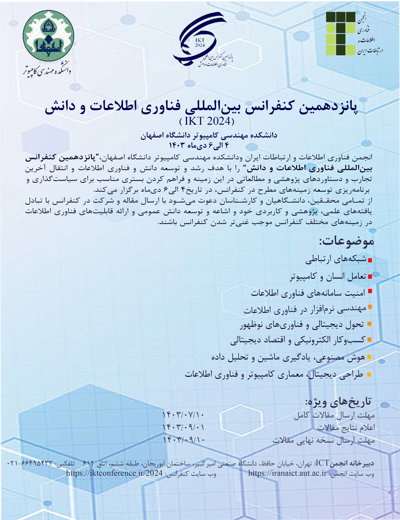0% Complete
Authors :
Keywords :
Abstract :
List of archived papers
سید عماد موسوی - مهرداد آشتیانی
Amir Soltany Mahboob - Mohammad Reza Ostadi Moghaddam - Shima Yousefi
Behnam Khazael - Hadi Tabatabaee Malazi
احسان شریفی - دکتر احمد عبدالله زاده بارفروش
Mohammad Mehdi Daliri Khomami - Alireza Rezvanian - Ali Mohammad Saghiri - Mohammad Reza Meybodi
Hosein Mohammadi Firozjae - Javad Zeraatkar Moghaddam - Mehrdad Ardebilipour
Dr Hamid Jazayeriy - Mohammad Daryani
محمد قرشی - حسن حقیقی
Maral Mirza mohammadi - Mahdi Tarom
کبری فرشیدی - حسن ختنلو - محرم منصوری زاده - الهام علی قارداش





